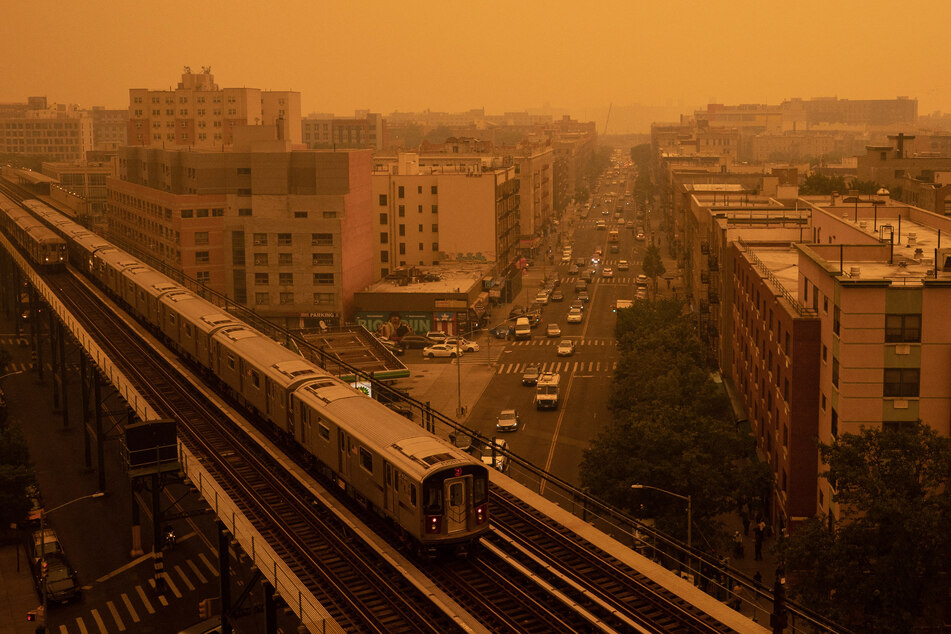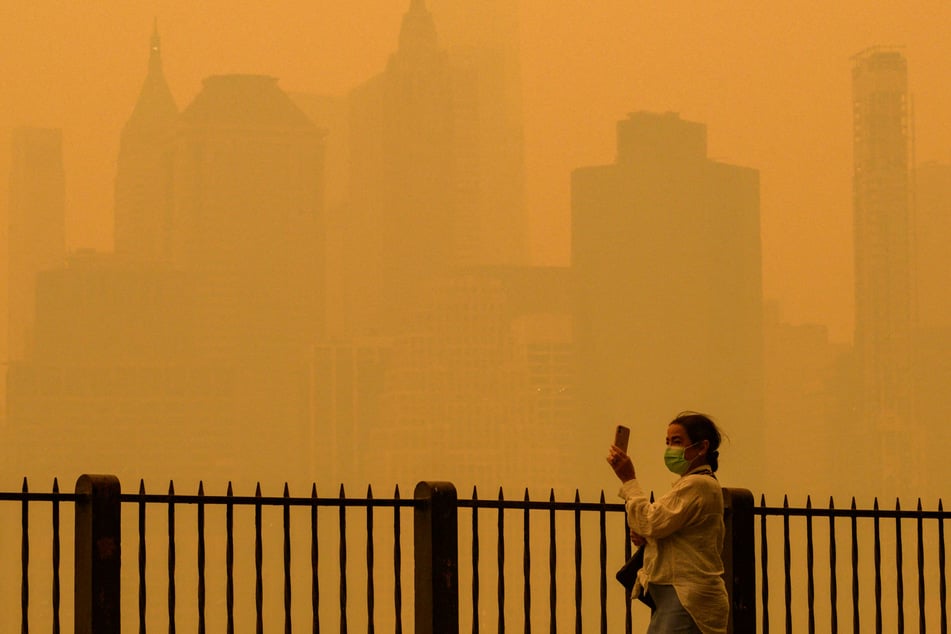Pollution from Canada wildfires similar to breathing secondhand smoke
Newark, New Jersey - The Canadian wildfires this summer exposed people to secondhand smoke at levels not seen since smoking was banned indoors in the state of New Jersey in 2006, according to preliminary findings from Rutgers University researchers.

Since the worst of the pollution from June 6 to 8, East Coast cities have continued to experience periodic dips in air quality.
Parts of Philadelphia were under a "code orange" alert at least two days this week, again due to wildfire smoke. (A "code orange" indicates that the air outside may be unhealthy for the elderly, children, and those with preexisting health conditions.)
The researchers in the ongoing study sought to understand the fires' impact on air quality in the Northeast United States and give insight into how this pollution could affect people's health, as such fires become more common with climate change, according to a statement Tuesday.
"The wildfires in Canada gave us a sobering demonstration of the climate change impacts on air quality," Memo Cedeño Laurent, an assistant professor at the Rutgers School of Public Health who is working on the study, said in the statement.
The average levels of pollution measured in New Jersey and New York on the afternoon of June 7 reached nearly ten times the maximum level that federal standards say is safe for people to consume over 24 hours. New York City was the world's most polluted city that day.
Researchers found that this was similar to the level of secondhand smoke in bars before the passing of a 2006 New Jersey law that banned smoking in almost all public spaces.
Wildfires are on the rise amid effects of climate change

Philadelphia residents began feeling the consequences soon after the smoke arrived, with people experiencing discomfort, reporting a smoky odor, and contending with the cancellation or postponement of outdoor events due to poor air quality. Emergency room visits did not surge as feared, but experts are still concerned about longer-term effects.
Wildfires are a leading pollution-related cause of hospitalization. A 2021 study discovered that the rise in hospitalizations due to wildfire smoke in Southern California far outpaced those caused by other sources of pollution.
In the next several months, the researchers said they will look more closely at chemicals that made up the smoke to study how exactly they can make people sick, as well as how they can contribute to climate change. The particles from the wildfire smoke can cool and warm the atmosphere, similar to the effects of greenhouse gases such as carbon dioxide.
The number of wildfires is increasing across North America. This year's wildfires marked a significantly earlier start to Canada's fire season. This year's fires have burned more than 2 million acres to date, an area of land equivalent to the size of Kentucky and double the average burned in previous years.
On days with poor air quality, experts recommend staying indoors when possible and wearing an appropriate mask — one that can filter out the small particles in wildfire smoke, like an N95. Buying an air purifier can also help, as well as inspecting home air filtration systems for those at greater risk.
Cover photo: DAVID DEE DELGADO / GETTY IMAGES NORTH AMERICA / GETTY IMAGES VIA AFP

